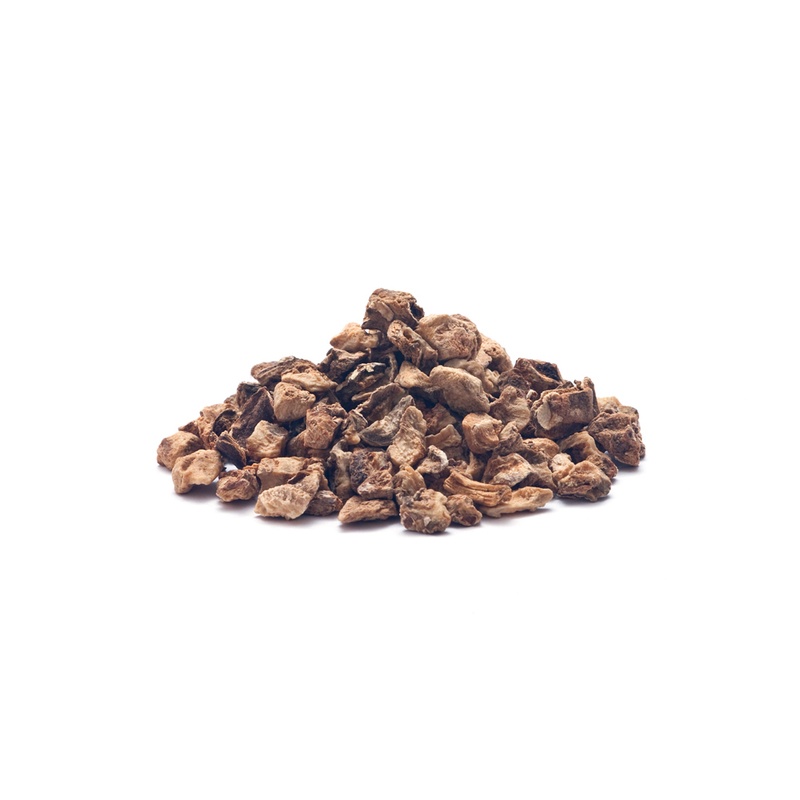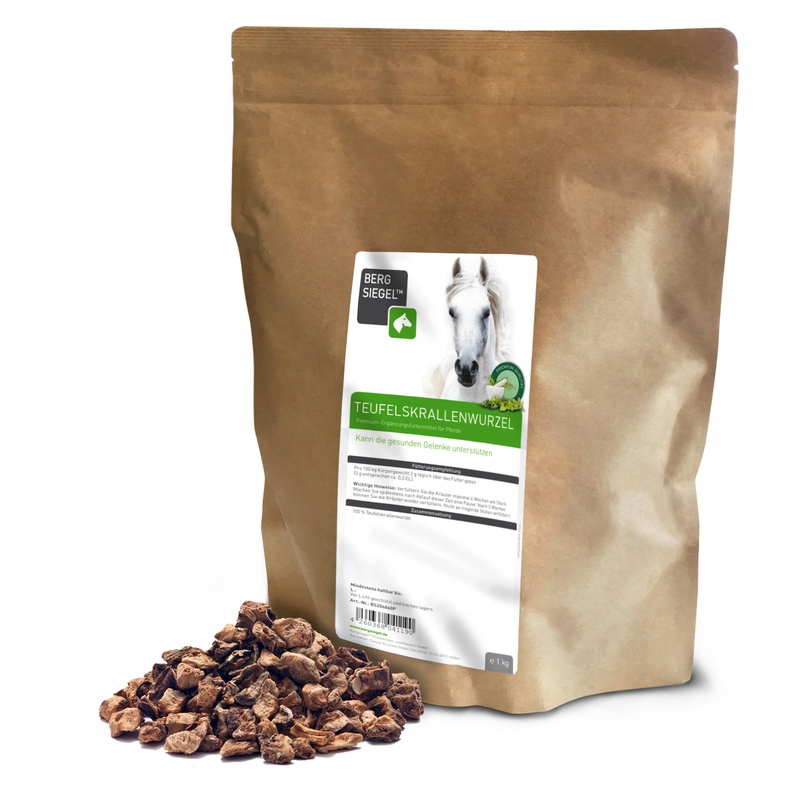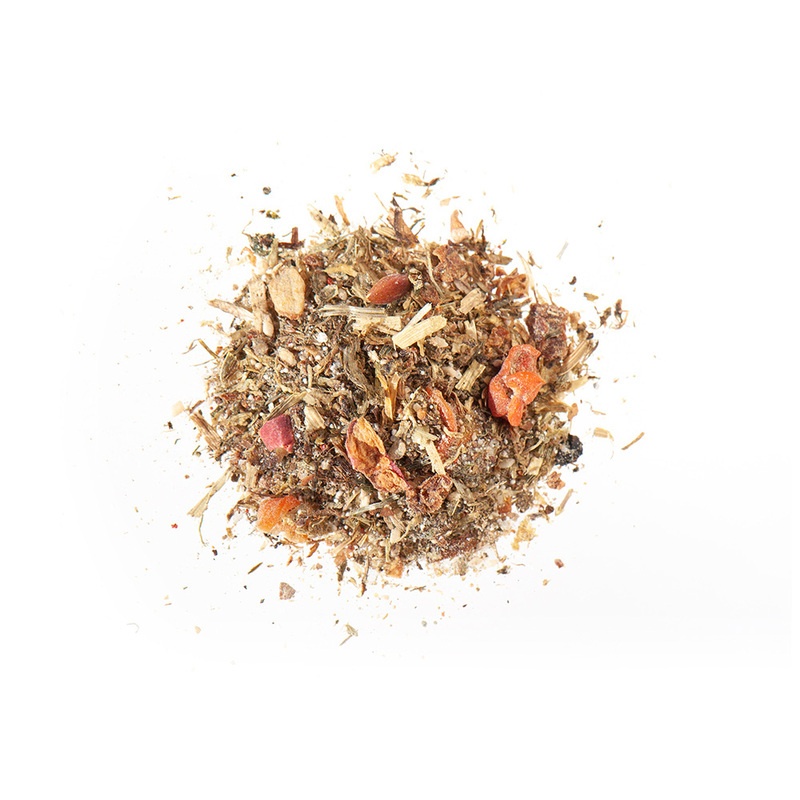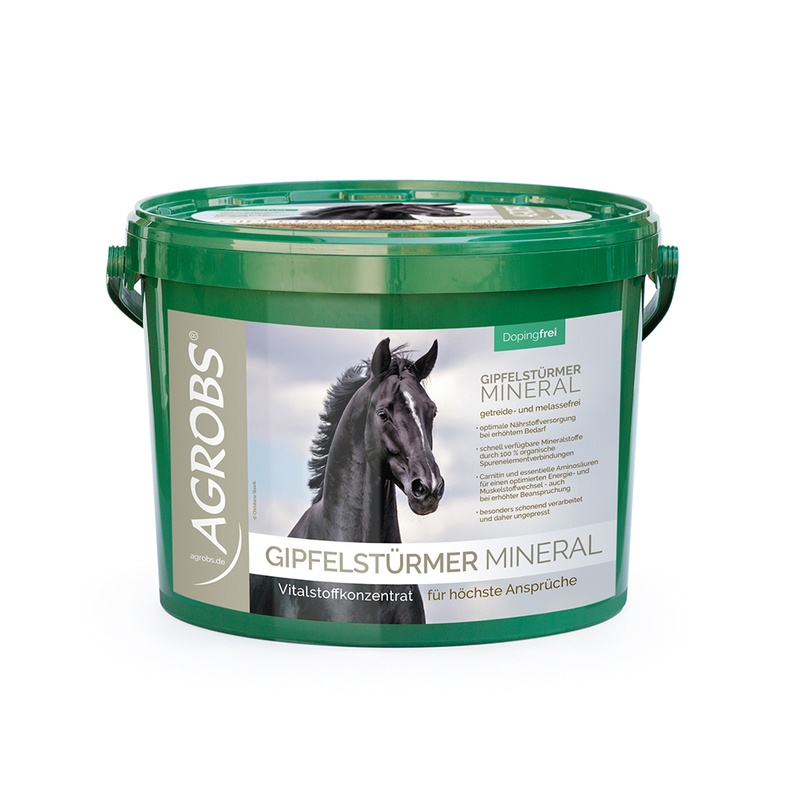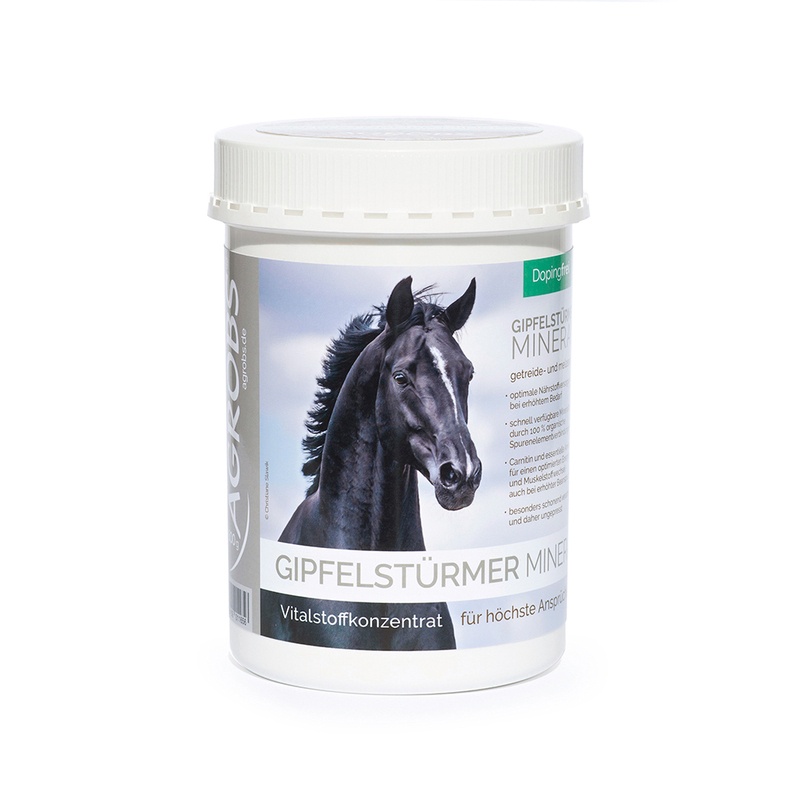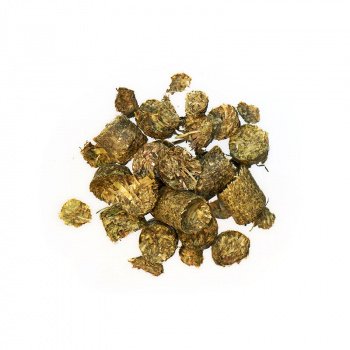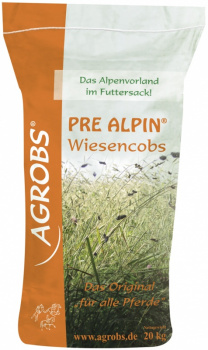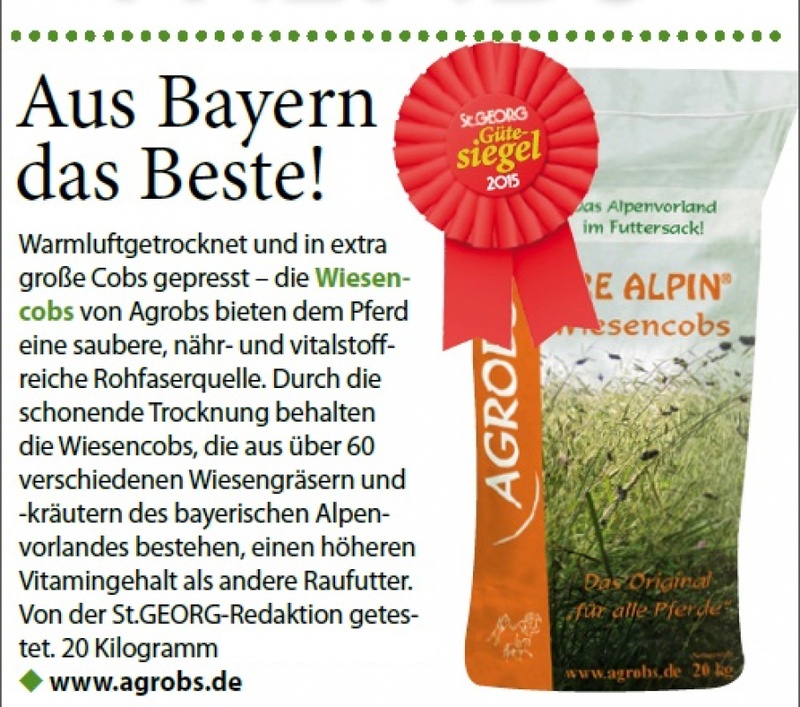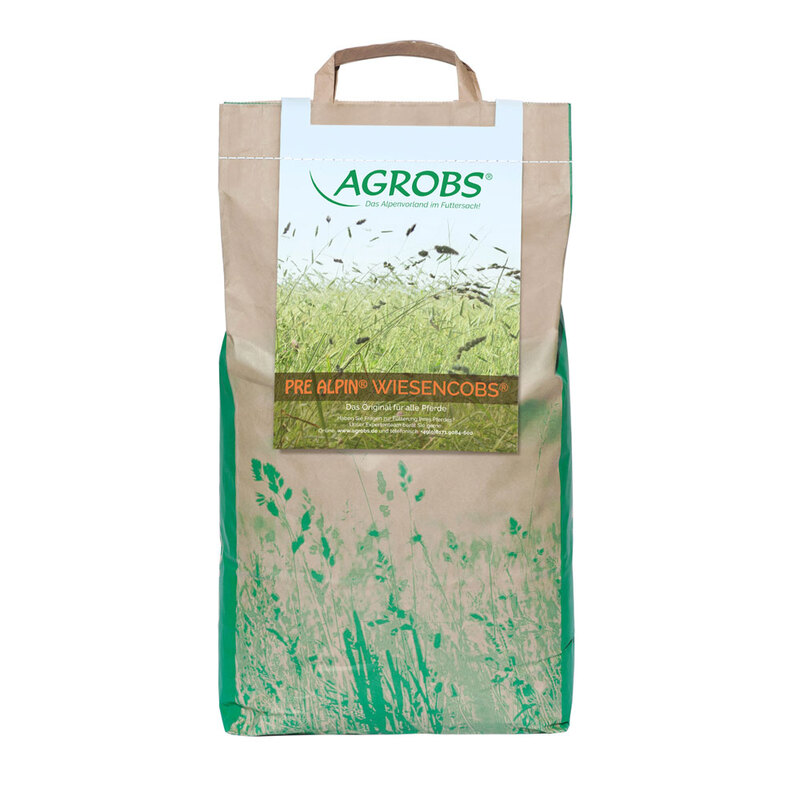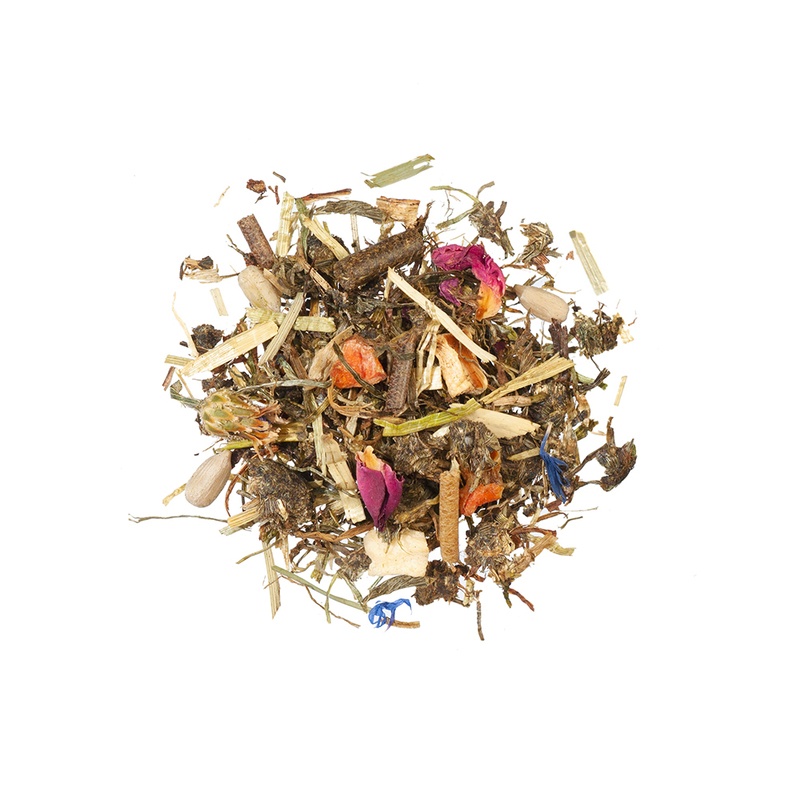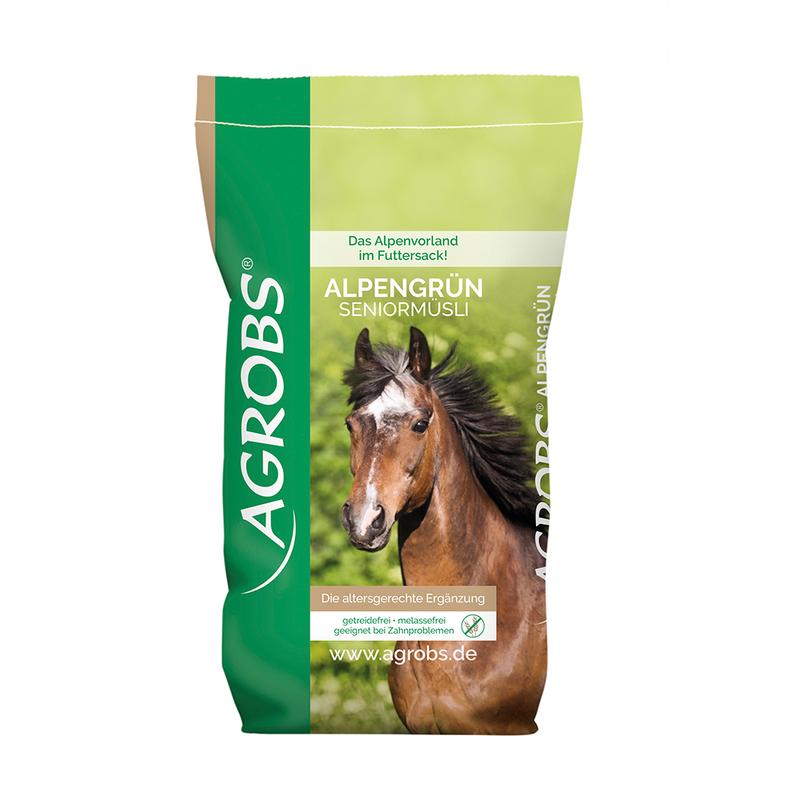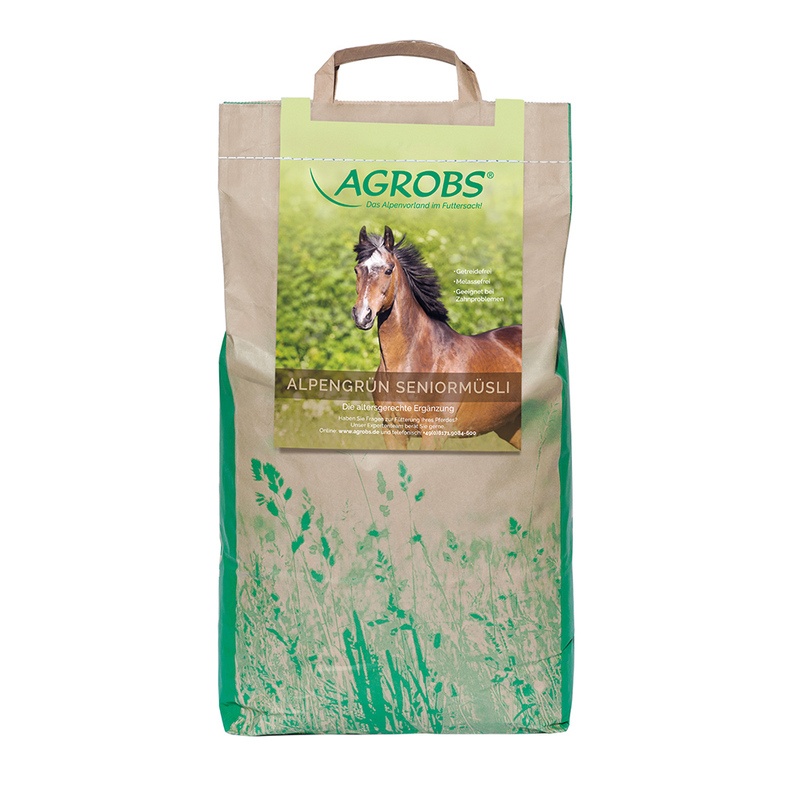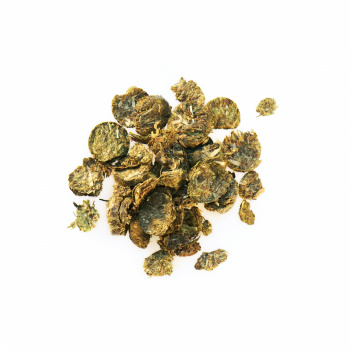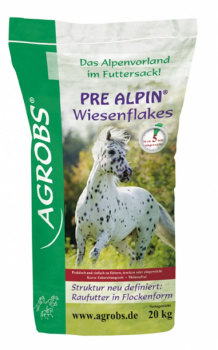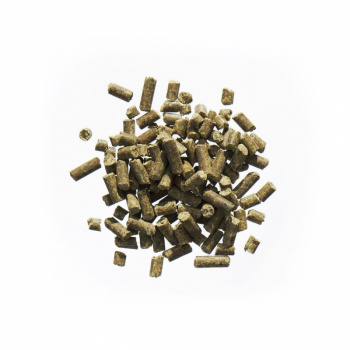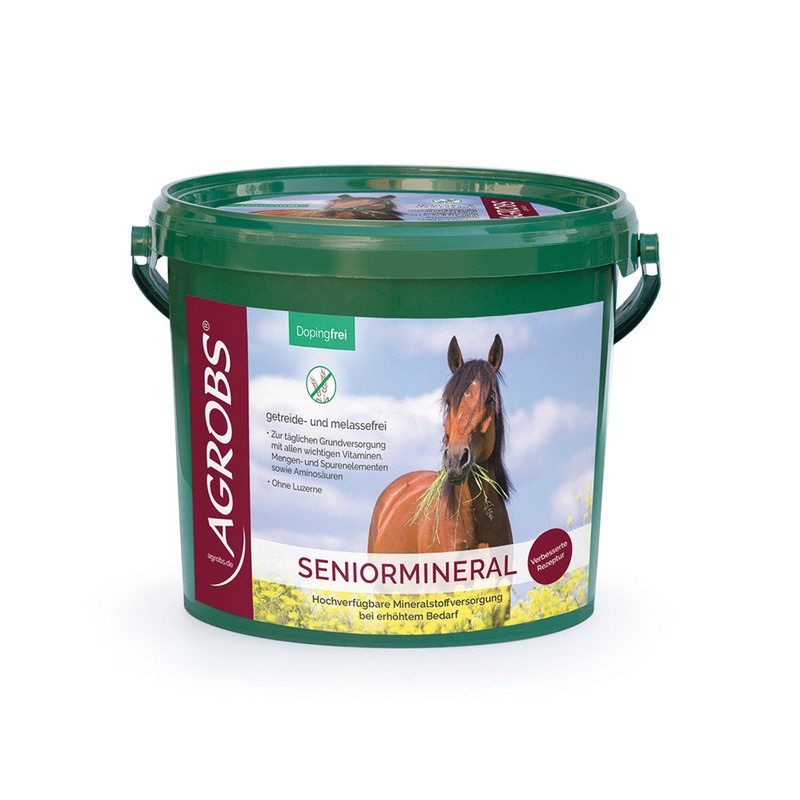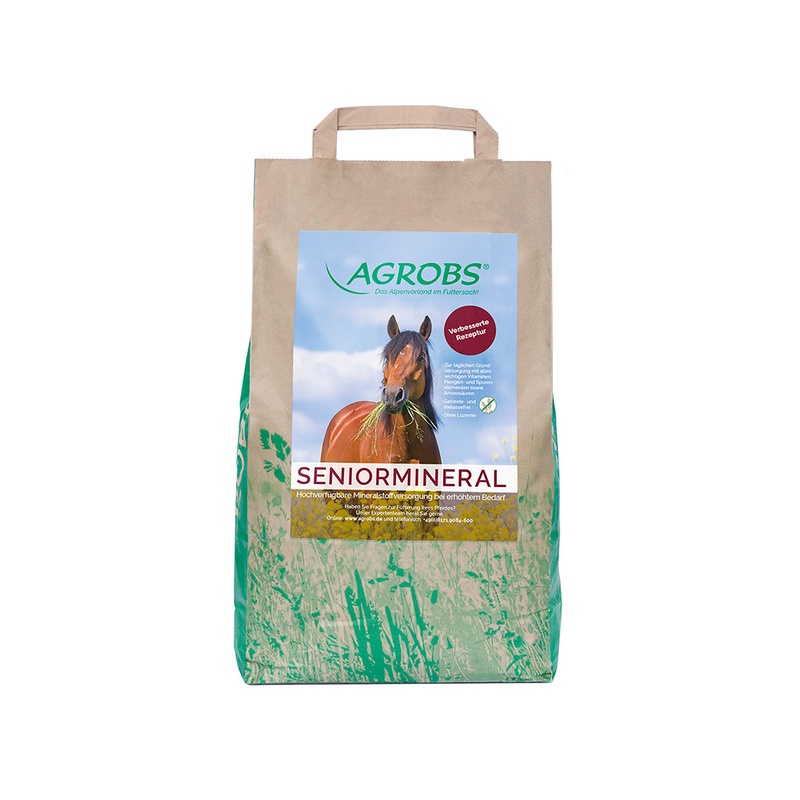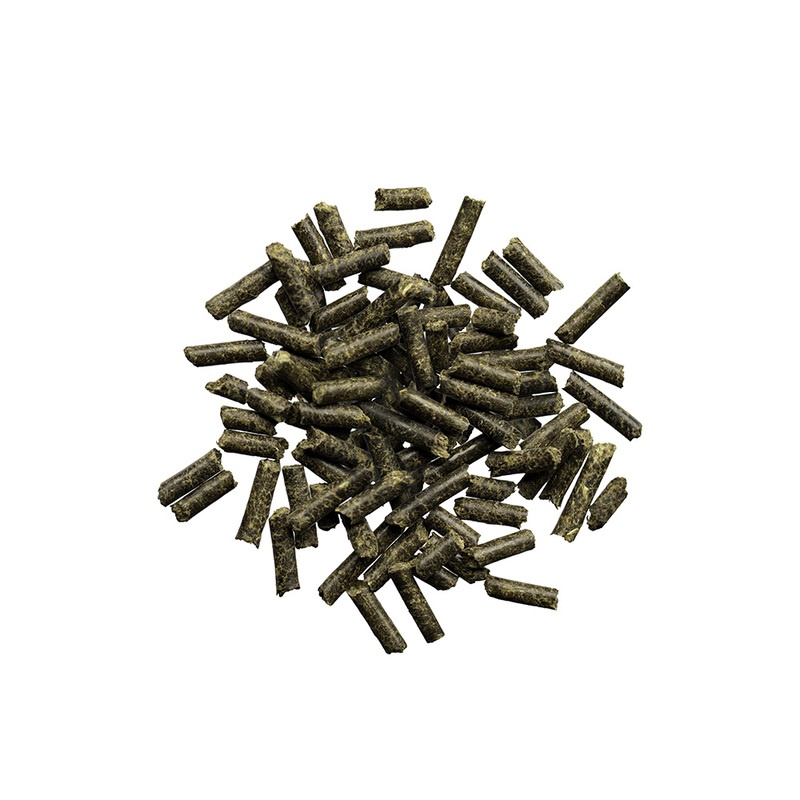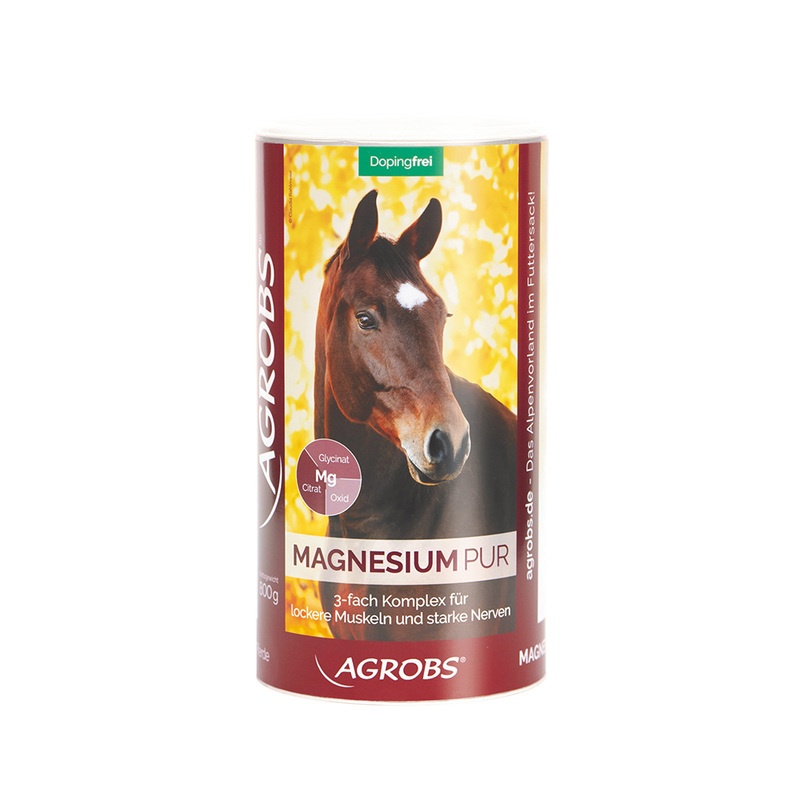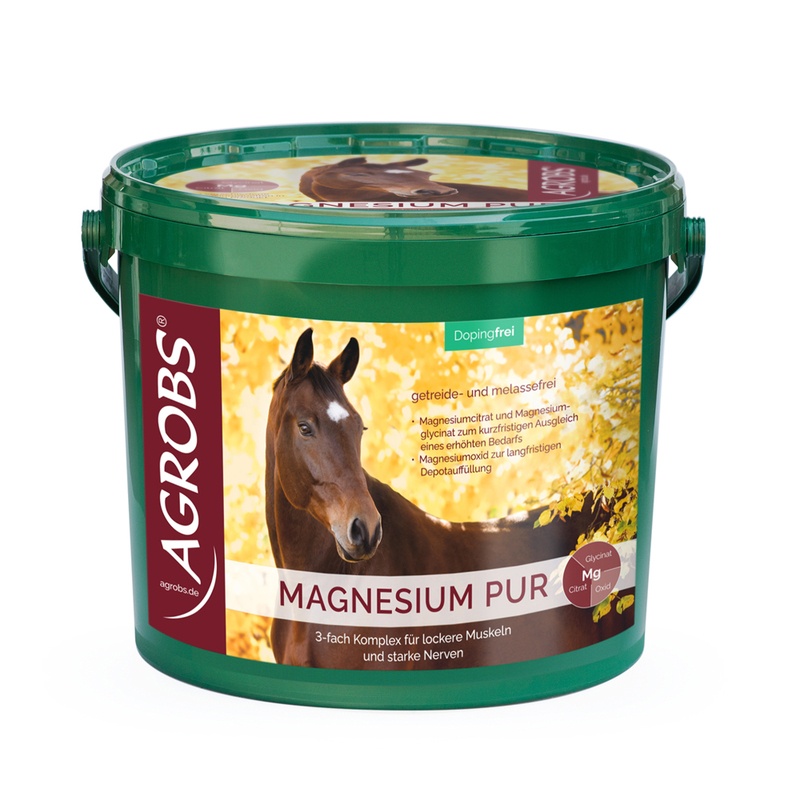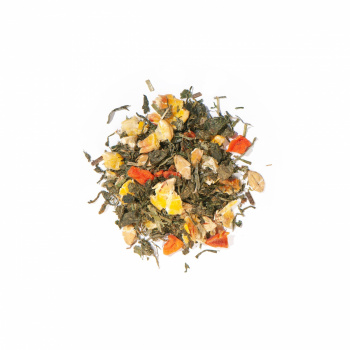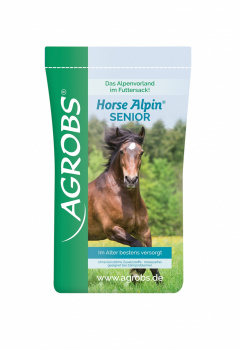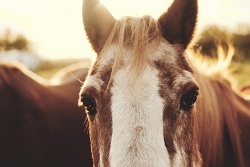
Feeding the Old Horse
Every horse owner knows that the most important component of their horse’s feed is roughage. But sometimes this simple fact poses a challenge to horse keepers: when you have an older horse.The basis: roughage
The general recommendation is for 1.5-2 kg of hay for every 100 kg of the horse’s body weight. This requirement also applies to senior horses, naturally. But in advanced age, dental deficiencies and a loss of molars can make it more difficult to eat hay. This makes it all the more important, even necessary, to use of hay alternative products like Wiesencobs® and Wiesenflakes®. It may even be necessary at some point to replace the entire hay ration with hay alternatives in order to provide the horse’s feed with sufficient structure. This might amount to the feeding of 6–10 kg of hay cobs daily.
But old age can lead to a reduced nutrient supply not only through the inability to mechanically break down feed components, but also from changes in absorption capacity and synthesis of nutrients in the intestine. The organisms of young, healthy horses have the capacity to synthesize their own nutrients, including B vitamins in the intestine and vitamin C in the liver. The reduced efficiency of these mechanisms due to old age makes mineral feeds all the more important. Here, products should be used that contain nutrients with high bioavailability to ensure an adequate mineral supply. One should also make sure that the mineral feed has an appropriate composition, with an adequate supply of the individual nutrients. One option here, for example, is Seniormineral or Gipfelstürmer Mineral.
But how can I tell if my horse needs a different feed?
Regular dental examinations are key. At least twice a year and more often if needed, a veterinary surgeon should come to examine the horse’s teeth, smooth down rough edges and pull any problem teeth that may be causing pain during feeding. A typical behaviour for horses with dental issues is quidding, a clear signal that the horse can no longer chew its hay properly. But observing your horse's eating habits can also help you decide when it is time for the next dental appointment. The passage of insufficiently chewed hay rations through the gastrointestinal tract can lead to reduced intake of energy as well as constipation. Combined with reduced water intake, as is common in older horses, this can quickly lead to a life-threatening situation. All these aspects make it essential for senior horses to get regular dental appointments and timely changes to their feed. This can also counteract excessive tooth loss in old age.But teeth aren’t the only problems senior horses face. Metabolic functions also change with advancing age, increasing the chances of diseases like Cushing's. In addition to a vet-prescribed drug treatment and feeds with reduced starch and sugar, measures are often necessary to counteract loss of substance. This can be done through a combination of AlpenGrün Pellet with Wiesencobs or Wiesenflakes, ensuring an adequate supply of sufficient crude fibre as well as proteins which help to maintain muscle mass.
Keep muscles and joints flexible
High-protein feeds like Myo Protein Flakes , Alpengrün Seniormüsli and Horse Alpin Senior also support muscle metabolism. This feed, in combination with exercise tailored to the senior horse, can help to maintain muscle mass even at an advanced age. Moderate exercise not only helps maintain muscle, it also promotes joint health. Especially in old age, when arthrosis can be a problem, exercise helps to improve joint cartilage so that joints stay flexible. Food supplements like glycosaminoglycans can also be used to maintain and nourish cartilage. Targeted use of devil’s claw or ginger can also help to relieve inflammations and joint pain – here one should make sure that there are breaks between feeding to give the stomach a rest.If we horse owners take these issues into account and respond accordingly, our senior horses can enjoy their well-deserved retirement and many more wonderful years to come.
More tips:
- Older horses should be fed smaller meals throughout the day and always be given ample time to eat.
- Always make sure your horse gets enough water, as older horses often don’t drink enough.
- Adequate exercise is important for maintaining fitness and helps to ensure that your horse lives a long, happy life.
- Hawthorn leaves or Bergsiegel Herbs for Good Health can help horses with cardiovascular problems.
Dr. Elena Feltl, Tierärztin
February 2020, © AGROBS GmbH
February 2020, © AGROBS GmbH




